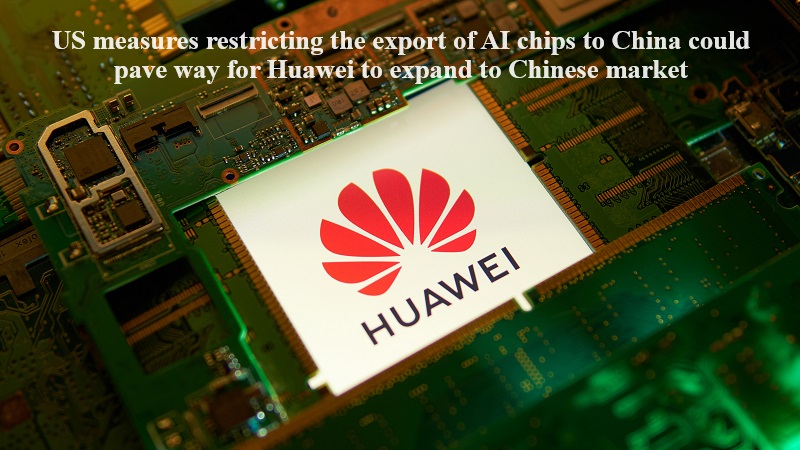
Recent measures initiated by the United States, with the aim of restricting the export of advanced artificial intelligence (AI) chips to China, have the potential to open doors for Huawei Technologies to expand its footprint in the Chinese market, valued at $7 billion. This development comes as Nvidia is forced to step back, as per analysts’ assessments.
Traditionally, Nvidia has held a commanding position in the Chinese AI chip sector, boasting a market share exceeding 90 percent. However, Chinese firms, including Huawei, have been diligently working on crafting their own versions of Nvidia’s popular chips, such as the A100 and H100 graphics processing units (GPUs).
Huawei’s Ascend AI chips are perceived as being on par with Nvidia’s chips in terms of raw computational power, even though they currently lag behind in terms of performance. The primary obstacle for Chinese companies was their dependence on Nvidia’s chips and software ecosystem. Nevertheless, recent restrictions imposed by the US have the potential to reshape this landscape, offering Huawei a chance to establish a more robust presence. Jiang Yifan, chief market analyst at Guotai Junan Securities, noted to Reuters, “This US move, in my opinion, is actually giving Huawei’s Ascend chips a huge gift.”
However, while an opportunity emerges, there are significant challenges to overcome. Many state-of-the-art AI projects rely on CUDA, a widely-used programming architecture pioneered by Nvidia, which has cultivated a global ecosystem capable of training advanced AI models. Huawei’s alternative, CANN, falls short in this aspect. To win over customers in China, Huawei must recreate the ecosystem that Nvidia has cultivated, encompassing the seamless transfer of data and models to its platform. The presence of intellectual property rights, many of which are held by US entities, further complicates the situation.
Should Huawei successfully capture Nvidia’s market share, it could chalk up another win against US export controls. In the past year, Huawei has displayed resilience in the face of these restrictions by introducing cutting-edge products, including a smartphone chip and advancements in chip design tools. The company is also positioning itself as a major provider of computing power for AI applications. In China, Huawei’s partners, such as iFlyTek, have been collaborating with the Ascend 910 to train AI models, underscoring the potential of Huawei’s AI offerings.
As Huawei pushes forward in pursuit of self-sufficiency, aligning with President Xi Jinping’s championed agenda, it is likely to find support in its endeavors. This situation may disrupt near-term supply chains but could significantly bolster China’s long-term self-sufficiency objectives. While Nvidia has held a dominant position in terms of ecosystem, analysts believe that, given time and a substantial customer base, domestic players have the potential to overcome these hurdles.

Post Your Comments